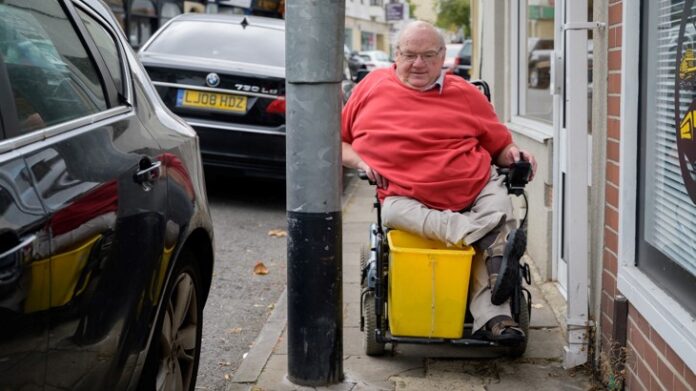A new report out today by the charity Sustrans highlights the issue of pavement parking in urban areas across the UK and Ireland, and has found that banning pavement parking would help 70% of all residents to walk or wheel more.
While Pavement parking is currently prohibited in London,the UK government is now considering extending this across England.The Scottish government is set to introduce a ban on pavement parking in 2023.
Sustrans’ survey, The Walking and Cycling Index also shows that just 56% of disabled people and 55% of residents on low incomes[1] feel welcome when walking and wheeling in their neighbourhood, with only 52% of people believing it’s safe for children to walk in their local area.
This compares to 69% of non-disabled people, and 74% of those in managerial or professional roles.
People walk or wheel more frequently than any other form of urban transport, with 50% doing so at least five or more days each week.
This compares to 39% for car use, 11% who use public transport and five per cent who cycle at least five or more days each week.
However, proximity of local services and amenities prevents people walking and wheeling more, as just over half of respondents (55%) agreed they could easily get to many places they need to visit without having to drive.
A total of 79% of people support the creation of 20-minute neighbourhoods where amenities and services, such as shops, green space and GPs are located within a 20-minute return walk or wheel of where they live.
However, the research found 27% of households are outside of a 20-minute return walk of a food shop, rising to 36% of households that are not within this distance to a GP.
Xavier Brice, Sustrans Chief Executive, said:
“I’d like to thank the more than 24,000 people who gave us their time to take part in this assessment.
“Walking and wheeling should be the most accessible and desirable form of transport.
“It is of huge importance to people, especially during the current cost of living crisis and climate emergency.
“The evidence is clear that people wish to feel safe and welcome while walking and wheeling, and without parked vehicles getting in their way.
“Pavement parking is discriminatory against wheelchair and mobility scooter users, other disabled people, those with visual impairments, and more.
“The UK government’s target is for half of all journeys in towns and cities to be cycled or walked by 2030.
“Achieving this will be impossible unless we do more to make walking and wheeling more accessible and inclusive – a vital first step is to ban pavement parking.
“Governments must listen to residents and prioritise walking and wheeling for everyone.”







